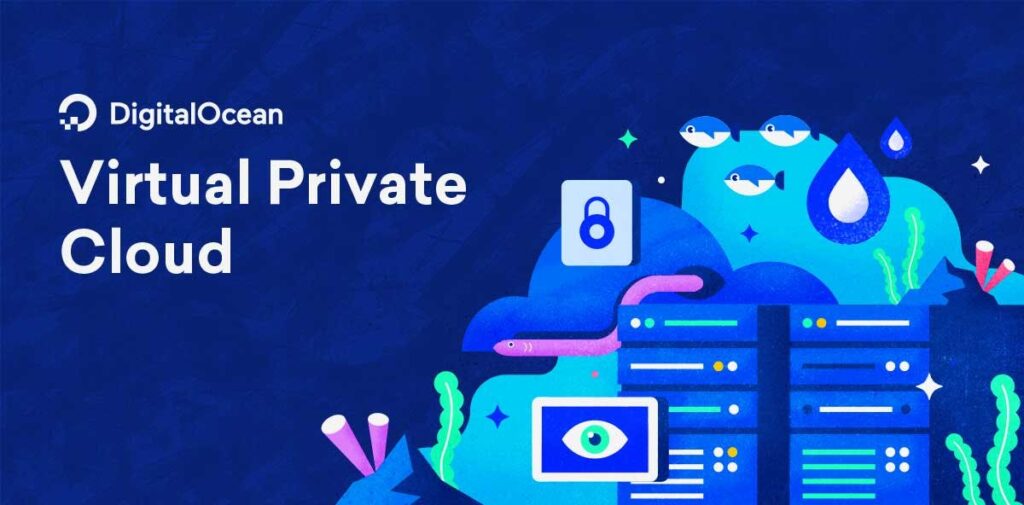Nowadays cloud services are becoming popular and their competition too. If you have a business what will you prefer? In this article know about the difference between AWS vs Azure vs Google Cloud vs DigitalOcean.
Table of Contents
Google Cloud
Google has evolved and presented a specific benefit that is gaining traction. This is developing its services in order to provide its customers with the best services. During cloud migration, the adoption of the Google cloud platform is growing between small and midsize enterprises. Its introduction makes sense because it eases stuff while still increasing security at a fair cost.
Users will rely on Google’s cloud infrastructure for dependable and massively available cloud computing services. These facilities assist clients in computing and storing data, as well as programmers in developing, testing, and deploying applications. The Google cloud infrastructure includes the device, storage, and cloud computing applications for backend, smartphone, and web-based applications. The network is trusted by over 4 million apps.
Azure
Azure is the leading cloud computing service providers by Microsoft. Established in 2010 and renamed Azure in 2014. This cloud computing service is developing its features for users on a large scale.

Azure is suitable for all types of businesses, including small local businesses to international companies. It’s conveniently flexible to satisfy the IT requirements, and it’s priced on a pay-as-you-go basis to suit every schedule.
Business owners will save money on IT expenses, such as infrastructure and servicing, by launching and storing internal and external software in the cloud.
Microsoft recognises the value of encryption and has built Azure to keep you one step ahead of competitors when it comes to digital protection. Azure has several regulatory certifications and is a top choice for cloud computing in elevated sectors such as health care and government. The portal, as well as the final consumer, are both secure.
Multi-factor authentication and advanced backup and recovery capabilities that can retrieve data in a matter of a few hours are among the additional services available to meet customer needs.
AWS (Amazon Web Services)
AWS services is an amazon company that provides cloud services. Amazon Web Services offers more than 200 products and services, like computation, storage, network, software, analysis, application services, implementation, marketing, artificial intelligence, computer, software apps, and IoT tools. Amazon Elastic Compute Cloud (EC2), Amazon Simple Storage Service (Amazon S3), Amazon Connect, and AWS Lambda are some of the most common (a serverless function enabling serverless ETL e.g. between instances of EC2 & S3).

Since the value of AWS varies counting on the number of information a client uses, start-ups and tiny corporations might even see the apparent benefits of Amazon for his or her computing devices.
In reality, AWS is right for beginning an organization from the bottom up as a result of it offering all of the resources required to start with the cloud. Amazon offers low-priced conversion choices for existing businesses, permitting the extra capability to be simply transferred to AWS.
AWS has a variety of customer service options. Basic care is provided for free 24 hours a day, seven days a week. Advanced plans begin at $29 a month and go up to thousands of dollars a year. You should expect an appointed service concierge and a skilled account manager for this substantial amount of money, who could facilitate you in making successful designs and answer any questions you might have.
There are also Amazon Web Services Discussion Forums where members of the group can share their experiences, express their thoughts, and seek assistance.
DigitalOcean
DigitalOcean, Inc. is a cloud computing company based in New York City that has computer servers all over the world. Developers will use DigitalOcean’s cloud platforms to install and scale apps that run on several machines at the same time.
DigitalOcean’s cloud infrastructure is mostly targeted to developers, but it also offers a globally distributed, increased public cloud service to anybody who needs it. DigitalOcean is noteworthy for a number of reasons.
The first point to consider is the simplicity of both the concept and the pricing. The second feature is its uncluttered architecture on all levels. DigitalOcean is also simple to use and comprehend, and it delivers excellent results.

Each Droplet would cost $5 a month per CPU, according to DigitalOcean’s pricing. When it relates to items like apps and load balancers, there are a lot of variables to consider. DigitalOcean, on the other hand, is fairly simple when it comes to simple computing resources.
Backups cost 20% of the Processor price, while load balancers are $20 a month. This is all subdivided every hour so that you don’t have to pay for a whole service period if you don’t need it.
Which one to choose?
When it comes to reliability, cost efficiency, and performance with all these factors AWS is the leading web cloud. It has everything you need at a low cost to afford and it’s relevant to businesses.
Google Cloud
This offers a number of different offerings. It’s a tried-and-true provider because it utilizes the same technology as Google for its programs. It is less expensive than AWS, but it still has fewer features; some AWS services are not yet accessible on GCP.
Azure
Azure has made a concerted effort to compete with Amazon, providing similar offerings at a cheaper cost. It, like Amazon web services and Google, compute engine, is a good option for large projects because it allows you to fully customize the system to meet the demands of the software.
DigitalOcean
DigitalOcean is a strong platform, but it only supports Linux applications. It’s simple and inexpensive to set up, which cuts down on production time and costs. This is a viable option for new businesses.
Tell us, which cloud hoster will you use and why? Do read our previous posts and subscribe to our newsletter for more updates and new topics.

